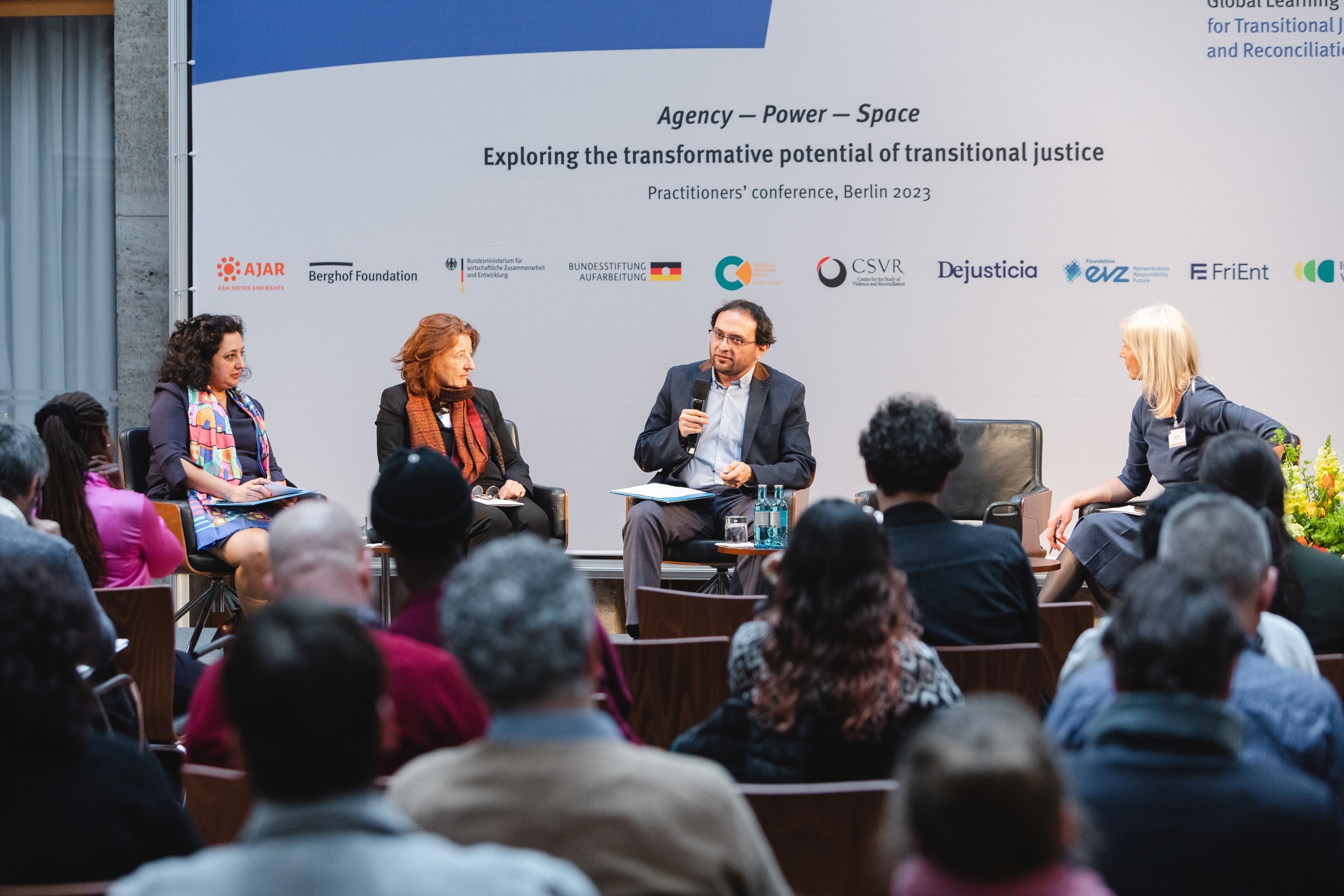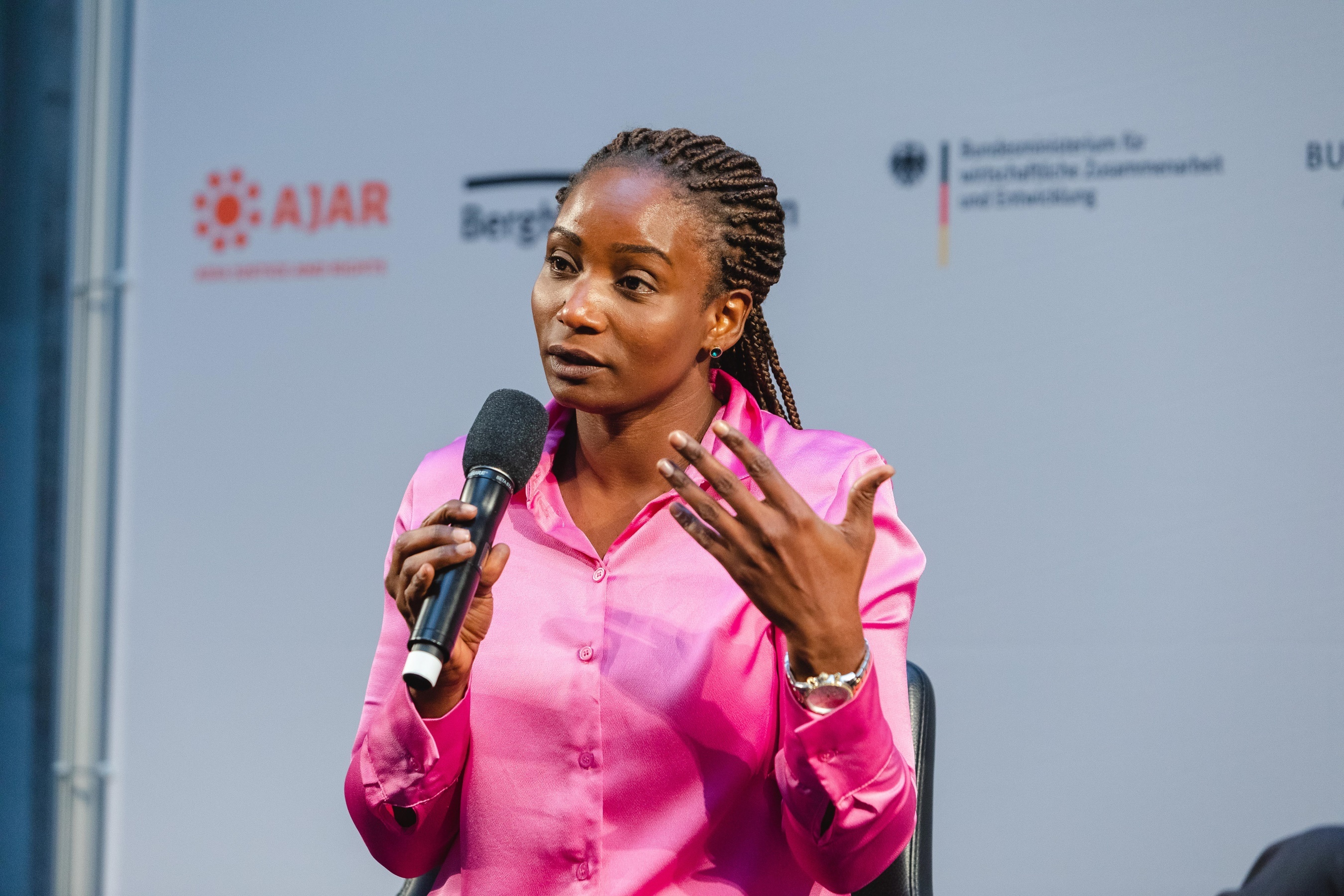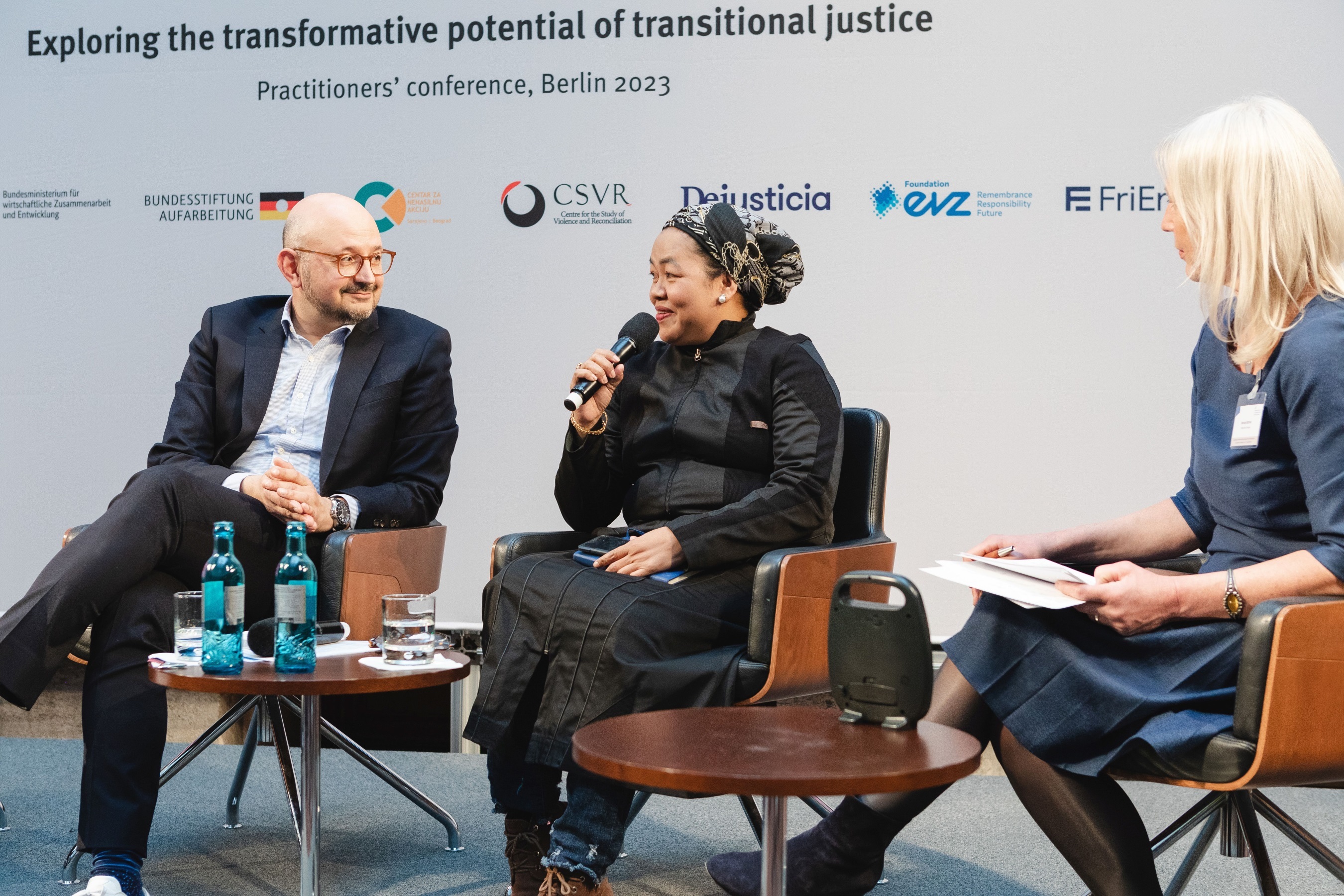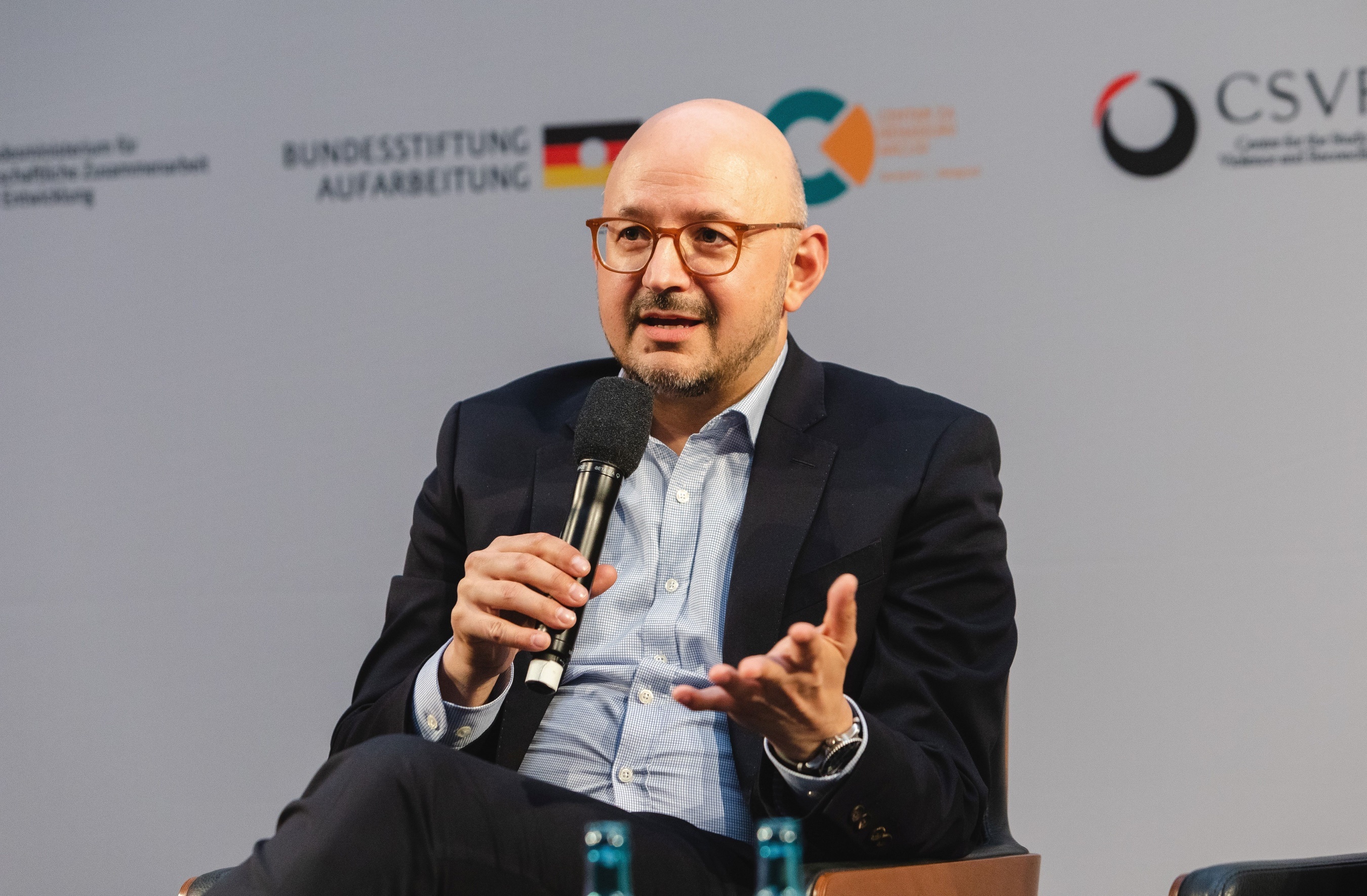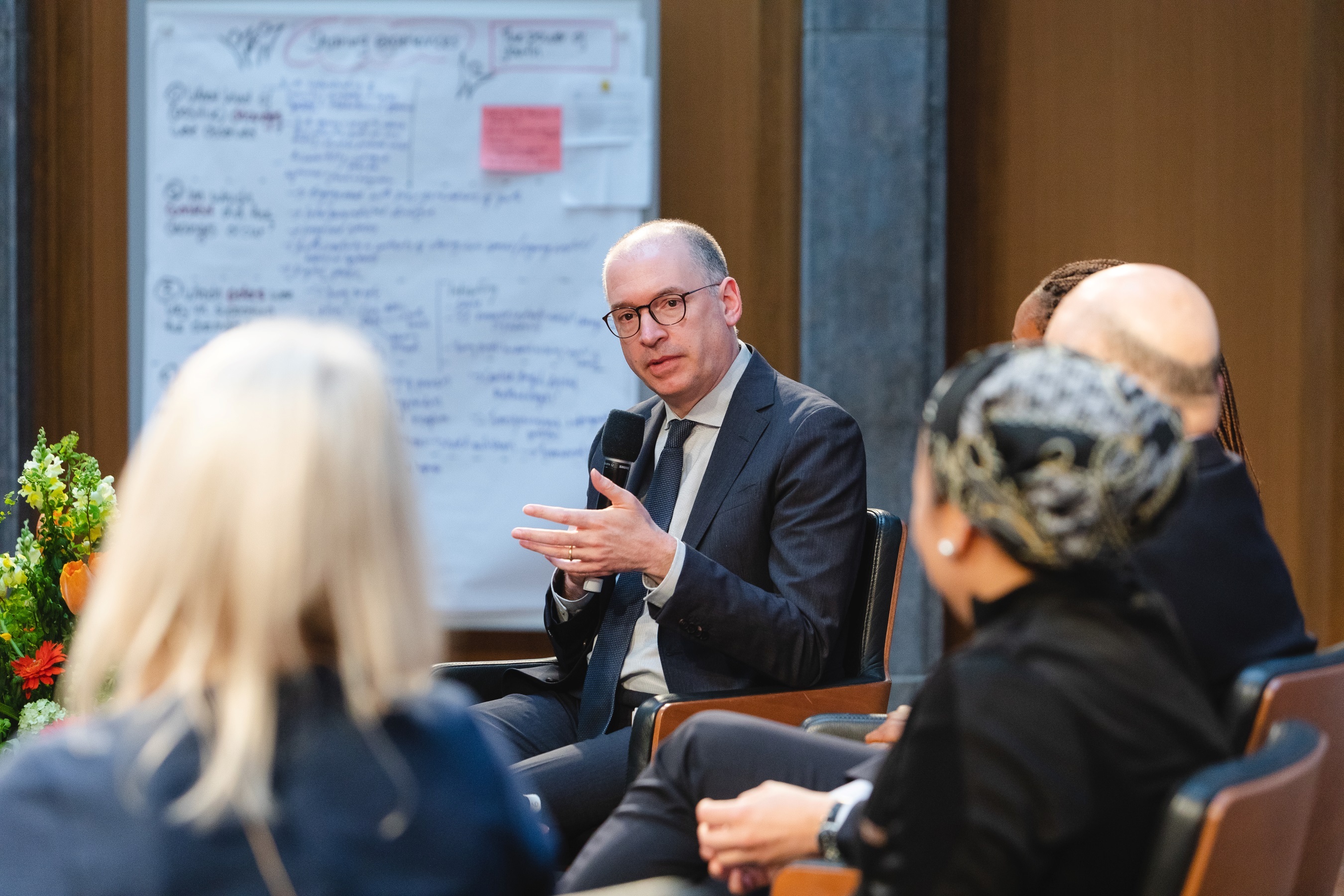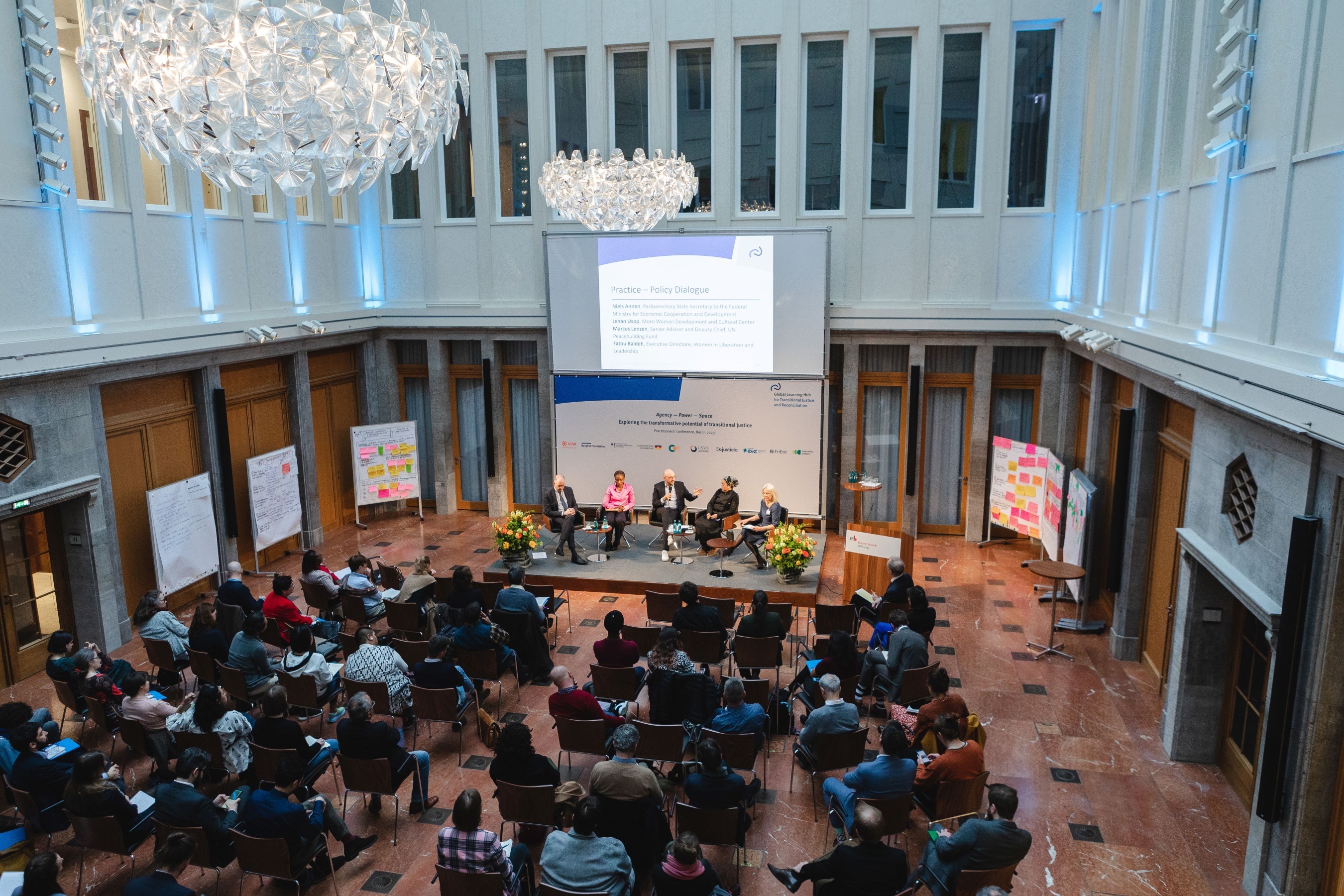FEATURE | 9 May 2023
Putting people at the centre of transitional justice
A dialogue between practitioners and policy-makers
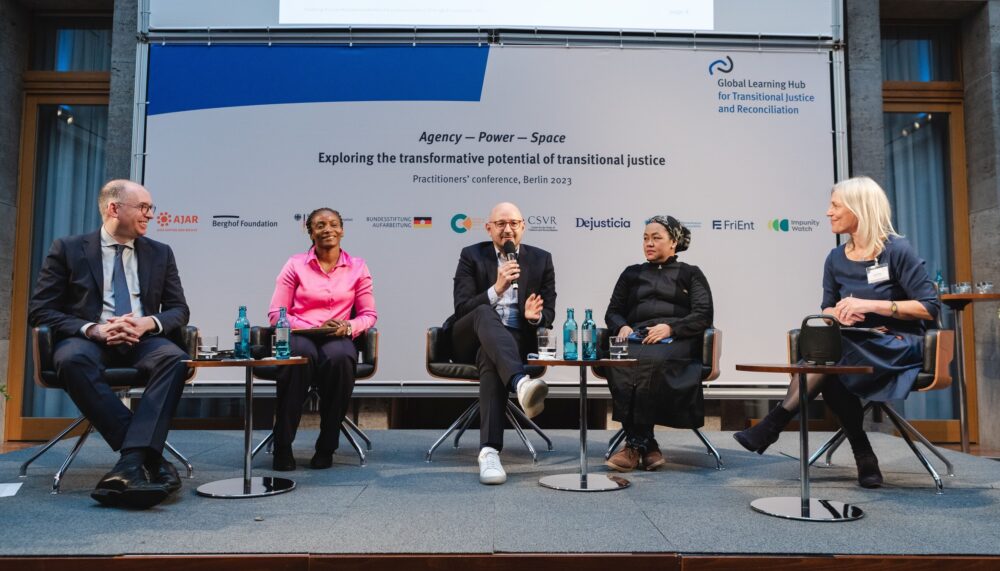
At our event, practitioners from around the world met policy-makers to discuss how people-centred transitional justice can contribute to building sustainable peace.
Truth commission – check. Criminal procedures – check. Security sector reform – check. Peace – check? In the early years of its emergence in the 1990s, transitional justice efforts were aimed at implementing a specific set of mechanisms and institutions that were seen as guarantors for achieving lasting peace. In recent years, however, there has been a widespread realisation in the field that following such a standardised approach does not automatically lead to success — achieving sustainable peace is more than a box-ticking exercise.
Instead, following the transformative claims of the UN’s Agenda 2030 and Sustainable Development Goal 16+, transitional justice practitioners have begun calling for a people-centred approach, which takes peoples’ specific and diverse needs as starting point.
Going beyond mechanisms and institutions, people-centred transitional justice aims to broaden the justice agenda to overcome deep-rooted historical and structural inequalities. How such an approach can be implemented in practice was the topic of an event where practitioners and policy-makers came together on 19 April in Berlin.
Creating participatory spaces
The event began with a presentation of key insights from a two-day practitioners’ conference that focused on the transformative potential of transitional justice. Mô Bleeker, independent consultant, highlighted that societies in transition are confronted with a particular challenge: establishing a new social contract that organises the relationship between people and the state in an inclusive manner. In her view, dealing with the past measures can use this opportunity to promote human rights as the basis for the emergence of a new social contract. In a similar vein, Maria Al Abdeh, Women Now for Development, highlighted the importance of creating a participatory space after periods of violence, which provides safety for victims and encourages solidarity.
Al Abdeh further emphasised the importance of supporting the leadership of victims in transitional justice processes, which to her must start by listening to those local groups who were affected by violence and who know their contexts best. Jorge Alberto Parra Norato, Special Jurisdiction for Peace in Colombia, concurred, arguing that to be people-centred, transitional justice should not be understood as a rigid institutional mechanism, but as an approach that recognises people as political and responsible agents. To achieve transformative change, Parra Norato urged transitional justice actors to form alliances between civil society, NGOs, as well as national and international institutions.
Closing the implementation gap
The ensuing panel discussion brought practitioners and policy-makers into a dialogue. By referring to the work of the Truth, Reconciliation and Reparations Commission in the Gambia, Fatou Baldeh, Women in Liberation and Leadership, highlighted how transitional justice mechanisms can function as a vehicle to amplify the voices of women. In her experience, this requires an active civil society, which in the Gambia has played a central role in the design and operation of the commission.
To Baldeh, the Gambian experience demonstrates the transformative potential of transitional justice in raising awareness about sexual and gender-based violence. However, Baldeh also emphasised that there is still an implementation gap that needs to be closed. Jehan Usop, Moro Women Development and Cultural Center Inc., underlined the power of civil society to influence policy-making. Drawing from the example of Bangsamoro, Usop argued that women’s activism was essential in achieving the ratification of the law that established Bangsamoro as an autonomous region on Mindanao, the second-largest island in the Philippines.
According to Marcus Lenzen, UN Peacebuilding Fund, international policymakers have recognised the importance of women and youth for peacebuilding and transitional justice. The UN Secretary General’s guidelines on transitional justice, which are currently under revision, highlight the importance of a human rights-centred approach. They also recognise the need to leverage the transformative potential of transitional justice by investing in national peacebuilding infrastructures to prevent recurrences of violence. However, Lenzen cautioned that transitional justice efforts could only achieve meaningful transformation if they are supported by national governments with strong political will and sufficient long-term funding.
Niels Annen, Federal Ministry for Economic Cooperation and Development, stated that the German government is determined to be a reliable partner when it comes to funding peacebuilding organisations and leveraging local networks. Despite difficulties in its implementation, Annen argued, the 2030 Agenda still provides the best way of achieving just, peaceful, and inclusive societies.
Media contact
You can reach the press team at:
+49 (0) 177 7052758
email hidden; JavaScript is required
